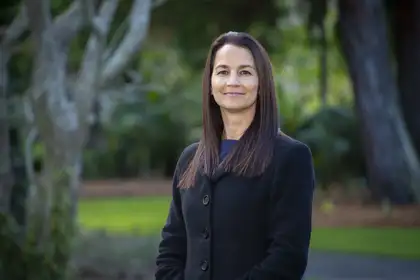
Associate Professor Natasha Tassell-Matamua
The multidisciplinary team of 11, who are based in the United States, United Kingdom, Germany, Spain and Aotearoa New Zealand, are the first team in the world to examine this topic in children and hope their findings will provide important insights into the end-of-life care needs of children and their parents or caregivers.
Unusual occurrences around the time of death have been reported across cultures for millennia. These occurrences seem to happen with regularity, with some estimates suggesting as many as 70 per cent of dying people experience unusual happenings, which can include seeing deceased others, a bright light, or hearing celestial music that others cannot hear.
Among the most intriguing of these end-of-life experiences is a lesser-known phenomena called terminal lucidity, a condition first named by Dr Michael Nahm in his article: Terminal lucidity in People with Mental Illness and Other Mental Disability. Dr Nahm is a member of the research team and defines terminal lucidity as an unexpected surge of mental clarity in the seconds, minutes, hours, or days leading up to death.
Terminal lucidity often happens to people that we would least expect it from, such as older people with advanced dementia. When it occurs in dementia patients, terminal lucidity could be characterised by the sudden recognition of loved ones who may not have been recognised for many years, combined with lucid and accurate recollection of long-lost memories and clear conversation.
“It is truly remarkable that such an occurrence happens in someone whose deteriorated brain condition is meant to be irreversible, and yet for those brief moments it is,” Dr Tassell-Matamua says.
She adds that terminal lucidity is not restricted to the aged, as it also happens in children, which is the subject of a their study.
“Current understandings are limited, but what we do know is that in children it occurs in much the same way as with adults, and can involve the sudden and unexpected return of physical and verbal functioning, conversations that they are ‘going home’, while also reassuring their parents that they will be ok.”
As with adults, why very unwell children would have such lucid episodes so close to death remains unclear, but the study seeks to find out more. The team has just launched its research website and the online survey they are using to collect accounts. The research team are seeking people who may have witnessed terminal lucidity in children to complete their online survey.
The study is funded by the Bial Foundation and more information about it can be found at the research team website.